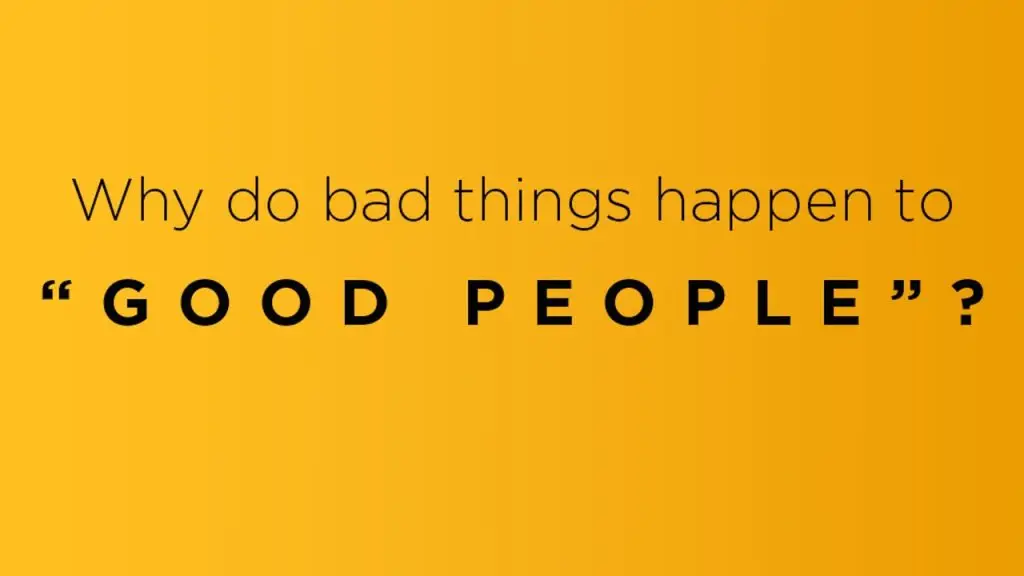Exploring the Paradox
The enduring question of why bad things happen to good people lies at the heart of human inquiry, stirring the minds of theologians, philosophers, and individuals confronting life’s adversities. This profound paradox challenges our fundamental belief in justice and fairness, beckoning us to delve deeper into the complexities of human existence.
Theological Perspectives: Seeking Divine Justice
From a theological standpoint, the question of human suffering presents profound implications for faith traditions worldwide. Theodicy, the study of reconciling the existence of evil with the notion of a benevolent deity, has been a subject of contemplation for centuries.
In Christianity, the concept of free will offers insight into the existence of suffering. The belief in God granting humans the freedom to choose between good and evil provides a framework for understanding suffering as a consequence of human actions, rather than as a direct punishment.
Similarly, Hinduism and Buddhism attribute suffering to the law of karma, wherein individuals experience the consequences of their past deeds, whether positive or negative, in this life or the next.
Philosophical Reflections: Confronting Existential Absurdity
Existentialist philosophers such as Jean-Paul Sartre and Albert Camus grapple with the inherent absurdity of human existence. They posit that the universe is indifferent to human values, and life is marked by randomness and chaos. In this worldview, the question of why bad things happen to good people underscores the fundamental uncertainty of our existence.
Psychological Insights: Finding Meaning in Suffering
Psychologist Viktor Frankl, a survivor of the Holocaust, offers psychological insights into the nature of suffering. His concept of logotherapy emphasizes the importance of finding meaning in one’s suffering, suggesting that even in the most dire circumstances, individuals can maintain a sense of inner freedom by choosing their attitudes and finding purpose in their pain.
Social and Environmental Factors: Understanding Systemic Inequities
Beyond theological and philosophical considerations, social and environmental factors contribute to the occurrence of adversity in people’s lives. Poverty, inequality, discrimination, and natural disasters disproportionately affect marginalized communities, irrespective of individual virtues or actions.
Navigating the Uncertainty: Embracing Compassion and Resilience
While the question of why bad things happen to good people may remain unanswered, it prompts us to cultivate compassion, empathy, and resilience in the face of adversity. Rather than seeking definitive explanations, our focus should shift towards alleviating suffering and fostering a world characterized by kindness, justice, and understanding.
Conclusion: Embracing the Journey
In the labyrinth of human existence, the question of why bad things happen to good people serves as a guiding light, illuminating the complexities of life and urging us to embrace the journey with courage and compassion. As we navigate the uncertainties of existence, may we find solace in our shared humanity and strive to create a world where goodness prevails, even in the face of adversity


















